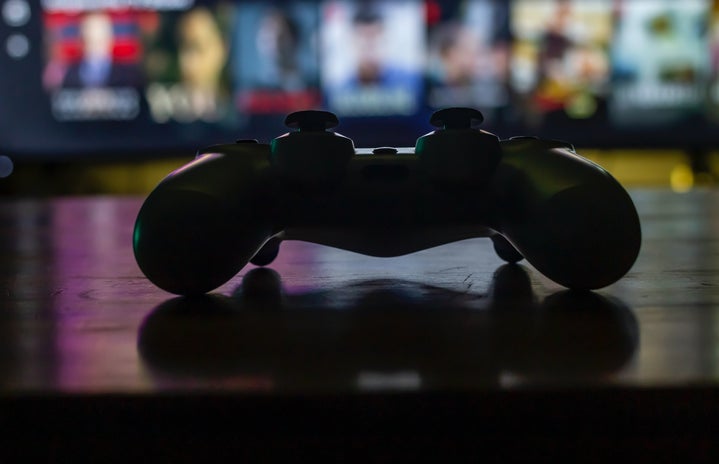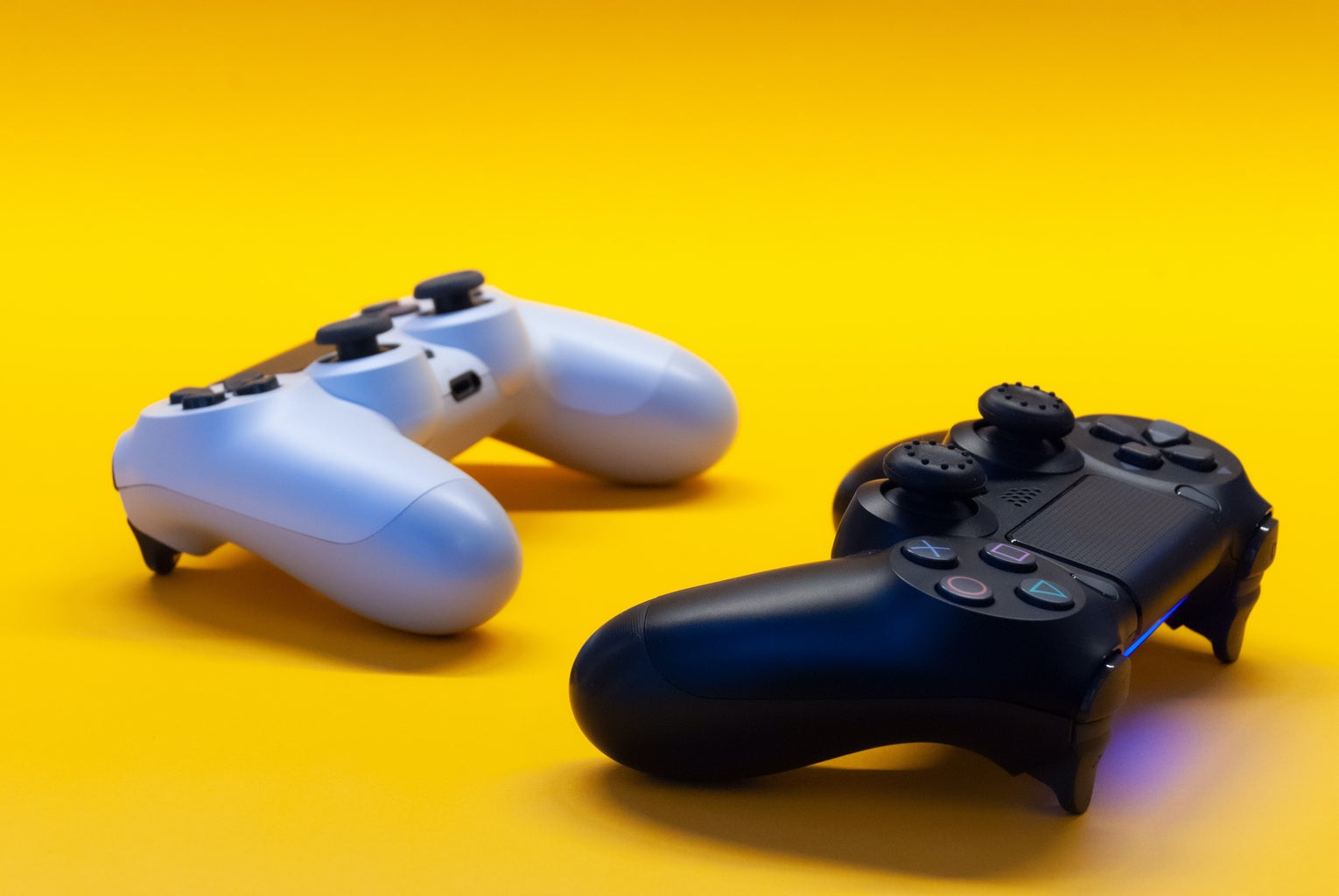A semi-recent joke trend is how girls only play Fortnite for their boyfriends, who then have to “carry them” (a term iGaming.org defines as, “A common esports term that refers to a player or character who, if they perform well, will ‘carry’ their team to victory.”)
Note: in research for this article, one of the first articles describing slang usage of the term “carry” states, “When a girl uses the term carry, it is unlikely that she is referring to the gaming slang meaning” and “Guys may use it in a more casual and laid-back manner,” highlighting the inherent sexism present in the gaming sphere)
In high school, when Fortnite lowered the barrier to entry by releasing a mobile version, the rapid-fire popularity of the Free-to-Play mode required a Beta Code. Players with access to other versions distributed these keys, meaning curious girls like me had to beg for the limited supply. My main point of reference for the biggest game on the market was popular football boys bragging about their Victory Royale streaks. Initially, I was motivated to play (and seem like “one of the boys”) in order to get closer to the ones I had a crush on.
I always downplayed my abilities; it was feminine to be “so bad” and feign ignorance. I was genuinely terrible in the beginning (as most beginners in anything are) but my self-doubt stunted my improvement. Experienced players I knew in real life tried to teach me the basic game mechanics, but ended up carrying every match because of the extreme skill gap, exasperated by being in their high-level lobbies. At the end of the day, they were ego-filled teenage boys who queued up with me out of pity and friendship and who had their own squads to really play with.
Scared of being on mic with randoms, since female voices often get sexually harassed, unfairly criticized, or wholly ousted from the team, I was unable to form online friendships to grind through levels, the way my male counterparts could. I was barred from the teamwork aspect that made these games so addicting.
It eventually evolved into my solitary hobby. I would spend hours playing solos on one of the worst adaptions of the title, struggling to get kills with touchscreen controls and hiding until I died because I didn’t know any better. Any similarly interested female friends never had access. My best friend could only play when her older brother was away at college. Girls only had a household Wii or Switch if they were lucky, while boys were commonly given their choice of allegiance to a “real” console of their own.
Playing girly games growing up centered around taking care of horses, dogs, and vet clinics or dressing up and roleplaying in a children’s MMO was not considered a real video game interest. My parents refused to buy me a Playstation thinking it was a phase I would get bored of in a week. I saved up all my allowance, including quarters sorted into dime bags and crumpled up dollar bills, and pushed it across the GameStop counter for my very own PS4 Slim when I was 16, trying to develop the muscle memory most players learned as children. As I got older, I sunk hours into single-player experiences, found friends that were around my skill level to play multiplayer games with, and overall grinded to “git gud.”
Flash forward, I’m now studying Game Development which is just as male-dominated as the gaming sphere itself. Just like how writers have to read, screenwriters have to watch films, and athletes have to practice, I have to play while maintaining a critical lens of what is going on under the hood.
It’s no secret the industry as a whole has been chasing the live service model with none coming close to the continued popularity and monetary success of Fortnite. Mainstream domination can be partially attributed to the simplistic, fast, and movement-focused gameplay, but the bulk of advertisement is community hype surrounding tie-ins. Cinematic universes such as Marvel and DC, other game IPs like Tomb Raider, Doom Guy, and Solid Snake, and even pop culture phenoms like Family Guy, seduce otherwise uninterested fans into exchanging real-life money for the digital currency of V-Bucks.
Optional cosmetics within a free-to-play game make the only required consumer buy in a time commitment while dangling pretty skins and emotes as an avenue of in-game expression. Unlike other media types, players have infinitely varied direct control over how they choose to engage. Play style is the moment-to-moment expression defined by what in-game weapons, items, and mechanics you utilize, how you move through the 3D space, and in multiplayer experiences, how you approach other players in combat. The lines blur when combined with our usual association of style with fashion.
Last semester, I introduced my roommates through the multiplayer experience of Roblox, another free-to-play game whose success is based on accessibility and freedom of cosmetic expression. Downloadable on any laptop or mobile device, we quickly got addicted to the, for some, previously foreign experience of playing video games with mostly female friends, establishing an even playing field without the internal judgment of being the worst one. However, being a platform for game creation rather than a specific gameplay experience resulted in a lack of quality control.
Ask any girl about games in their past and the same IPs appear; The Sims, Animal Crossing, various Nintendo titles, or something as simple as browser dress-up games. Many of them had a similar experience growing up of either not being given the same opportunities as brothers, cousins, and friends, or being conditioned into thinking they weren’t “good” enough to play “real” games. No FPS or competitive titles combined with a lack of confidence meant Fortnite, despite being free-to-play and notorious for its majority child fanbase, wasn’t ever considered as an option.
That was until I convinced them to download Fortnite onto their Nintendo Switches. Like I had experienced years ago, I witnessed their instantaneous addiction. With so much more playtime and experience under my belt at this point, I took on the role of the master showing them the ropes. Every self-dismissal, writing themselves as being “so bad” was met with my encouragement to try their best and play with confidence. Games are supposed to be fun, after all, and the only way to get better is to give it your all. After only a couple of months of playing, they have improved more than I did in a year because they started with a squad they can count on. What we all might lack in technical skill is made up by our teamwork and communication.
We are full-time students with schedules booked out with jobs and extracurriculars, meaning our game fad would have died off as soon as it started if it weren’t for our earnings as we progressed. More kills and wins against higher-ranked enemies earned more experience points we could put toward small cosmetics. My full locker from previous seasons inspired envy in my squadmates, leading them to put down the cash for skins of their own. Something as small as a backpack, pickaxes, or gliders helps set the mood for the match. The motivation of being able to emote after a squad wipe was enough to push them to play more aggressively and creatively. I watched as they became more intimately familiar with push strategies, movement combos, and map knowledge when only a short while ago their load-outs were laughable.
As the new season was unveiled, they schooled me on the new mechanics and balance changes, terminology common to me within my major but previously unknown to them. We played enough last season to have unlocked the Battle Pass, which I had never had the dedication to complete before, so we all got it together and currently sport matching outfits. Our unwinding nightly tradition is to look through the shop, hop on for a few games, and build our common connection. Cosmetics have become so key to our identity as players, and our player identity so key to who we are within our friendship, that we catch ourselves referencing our digital life as our different dynamics blur together. I’m taken aback when I spot an enemy player with the same skin as one of my teammates. “I thought that was you!” are all too common last words before hearing the telltale medical beep indicating a hurt teammate. And when we are going through what real life throws at us, we halfheartedly exclaim we will at least see each other on the Battle Bus later. Is it crazy that we would rather be playing right now?
Most importantly, it is where we can allow ourselves to have fun with each other. When we knock an enemy, one of us picks up their downed body, and the other lines up a sniper shot to finish them off, emoting to celebrate our success. We race cars, honking when someone takes too long to get in, pick fights with bots, do back flips on bikes, jump off cliffs into water, beg for help when we miss, and throw shield splash to protect each other in the midst of battle. As we grow as women, friends, and teammates, this support becomes second nature. Knowing each other’s favorite weapons and items means carrying something across the map you don’t even use because of the joy it brings and the morale it boosts.
When I do find myself in the final circle, each Victory Royale means more than just a win in a game; it is a win for me and my best friends. And we look damn good doing it.





